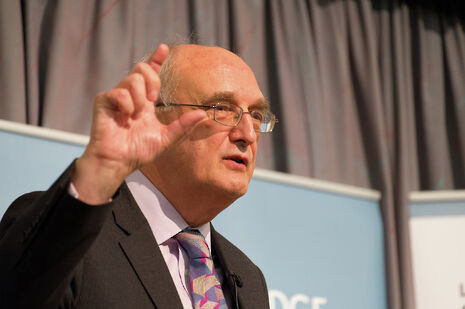Cambridge VC ‘disappointed’ by Brexit
Vice-Chancellor of the University of Cambridge, Professor Sir Leszek Borysiewicz, has responded to the news that Britain will leave the EU

The University of Cambridge's Vice-Chancellor, Professor Sir Leszek Borysiewicz, has issued a brief statement regarding Britain's decision to leave the EU:
"We note this result with disappointment. My position on this issue is well known, but 52% of voters in the Referendum disagreed. We will work with our partners in business, research and academia, as well as our European partners and the Government, to understand the implications of this outcome."
The referendum saw 51.9% of voters opt for 'Leave', with a turnout of 72.2%.
Cambridge overwhelmingly backed Remain, with 73.8% of voters choosing to reject Brexit. The electorate of Oxford acted similarly, with 70.3% there supporting continued membership of the EU.
Prior to the referendum, Borysiewicz joined 95 other vice-chancellors in saying that they were "gravely concerned about the impact of a UK exit from the EU on our universities and students”. On another occasion, he had argued that: “what the Brexit camp is asking for, the article says, ‘is the economic equivalent of quitting your job because you think you can get it back later, minus all the parts you don't like. In other words, a fantasy’”.
Responding to the results, President of Lucy Cavendish College, Jackie Ashley, tweeted: "Always thought I'd be pleased to see the back of David Cameron, but not under these [circumstances]".
Many notable Cambridge academics had argued against Brexit. Prior to the vote, Dr. Julian Huppert, former MP for Cambridge, told Varsity that we were "far better off staying in Europe – we’re better off financially, it provides us with opportunities to travel and work overseas, and it’s promoted peace around a once war-torn continent."
Professor Brendan Simms, an EU expert, had argued that Brexit would "damage the EU as a whole. It will increase separatist tendencies and dispirit elites and populations across the continent."
More to follow.
 News / Uni Scout and Guide Club affirms trans inclusion 12 December 2025
News / Uni Scout and Guide Club affirms trans inclusion 12 December 2025 News / Cambridge study finds students learn better with notes than AI13 December 2025
News / Cambridge study finds students learn better with notes than AI13 December 2025 News / Cambridge Vet School gets lifeline year to stay accredited28 November 2025
News / Cambridge Vet School gets lifeline year to stay accredited28 November 2025 Science / Did your ex trip on King’s Parade? The science behind the ‘ick’12 December 2025
Science / Did your ex trip on King’s Parade? The science behind the ‘ick’12 December 2025 News / Pembroke to convert listed office building into accom9 December 2025
News / Pembroke to convert listed office building into accom9 December 2025








